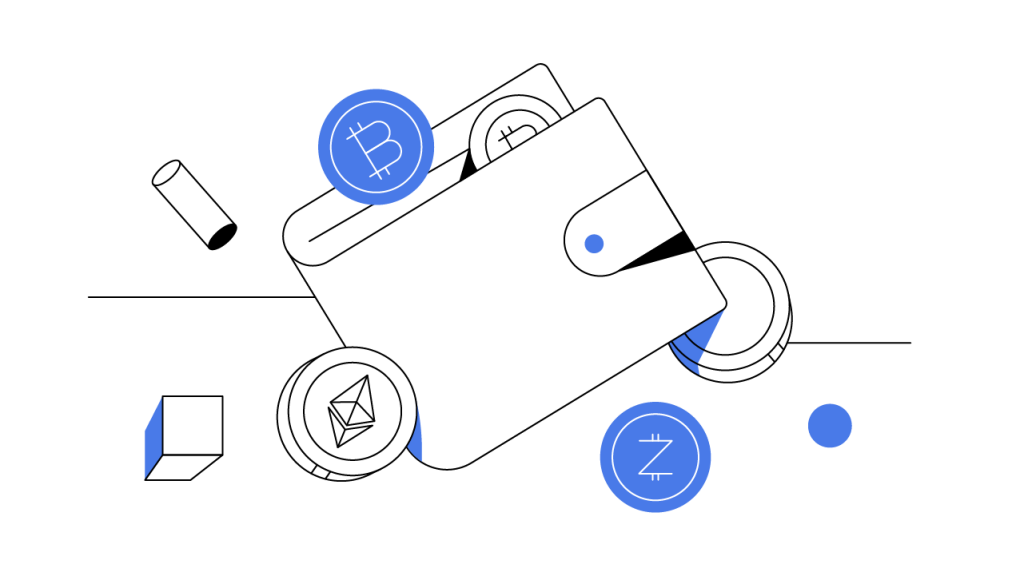Contents
How Secure Are Crypto Wallets? A Complete Guide
Learn the basics of secure crypto wallets, including differences between hot and cold wallets and which is considered more secure.

Summary
Cryptocurrency adoption continues to rise across the globe, and for many, crypto wallets are the gateway to buying, storing, and managing digital assets. However, how secure are they? The short answer is that crypto wallets are most secure when used properly, but risks do exist. In this guide, we’ll break down how wallets work, different types, security features, potential vulnerabilities, and the best practices you can follow to protect your holdings.
What Makes Crypto Wallets Secure?
Crypto wallets use your private keys, the digital codes that prove your tokens belong to you, securely. Without those keys, you can’t access or move your cryptocurrency. Wallets rely on strong cryptography and blockchain verification to keep your funds safe.
Unlike a bank, no central authority can reset your crypto wallet if you lose all forms of access to it.
Wallet design focuses on encryption, backups, and secure sign-ins. Some wallets also integrate with exchanges, giving users more ways to manage their assets. Still, all security comes down to a user protecting their keys. If keys are exposed, stolen, or misplaced, your funds may be irrecoverable and at risk permanently.
Types of Crypto Wallets
Not all wallets are the same, and understanding the differences can help you choose the right kind.
Hot Wallets
These wallets are connected to the internet — taking the form of mobile apps, browser-based extensions, or exchange accounts. Their main benefit is convenience: you can quickly trade, send, or receive crypto. However, constant connectivity exposes them to online threats like malware or phishing attacks.
Cold Wallets
Cold wallets hold your crypto offline, typically in hardware or even . Since they are not connected to the internet, they are much harder for hackers to access. The trade-off is that they may be less convenient for frequent transactions, but long-term investors generally believe they are the safest method.
Custodial vs. Non-Custodial Wallets
are other options:
Custodial wallets: A third party, like an exchange, holds your keys. This can be easier for beginners, but it means you’re trusting someone else with your funds.
Non-custodial wallets: You control your private keys directly. While this provides maximum security and independence, it also makes you fully responsible for your funds.
The wallet you choose depends on your goals. Traders may prefer hot wallets for speed, while long-term holders often prefer cold storage.
Can Crypto Wallets Be Hacked?
No system is completely hack-proof, but most incidents involve exploiting
Common risks include:
Phishing attacks: Fake websites or emails trick users into revealing their keys.
Malware: Viruses installed on a device that steal login information.
SIM-swapping: Criminals hijack your phone number to bypass 2FA.
Weak passwords: Easy-to-guess logins make accounts vulnerable.
There have been many high-profile cases of hacked exchanges and compromised wallets. In nearly all situations, attackers targeted users’ habits through social engineering, not the blockchain itself. That’s why being aware of these risks and taking preventative steps is key.
Security Features of Crypto Wallets
to ensure that they stay up-to-date with the changing threats.
Common features you’ll find include:
Two-factor authentication (2FA): This provides an additional layer during the process of logging in.
Biometric logins: Fingerprint or face authentication to provide more security.
Seed phrases and recovery keys: Let you restore your wallet if your device is lost.
Hardware encryption: Found in physical wallets for tamper resistance.
Multi-signature support: Requires approval from multiple keys before moving funds.
Each of these characteristics contributes to minimizing risk, although they work when enabled and properly managed by users. Many security breaches occur not because the technology failed, but because people neglect key precautions, such as securing seed phrases.
Unlock the future of money on Gemini
Start your crypto journey in minutes on the trusted crypto-native finance platform
How To Keep Your Crypto Wallet Secure
Even the best wallet cannot protect you from unsafe habits. The good news is that the with the help of a few standard practices:
Write down your seed phrase and keep it offline in a secure place.
Use unique, complex passwords instead of reusing them across accounts.
Enable 2FA on every wallet and exchange account you use.
Always update your software and fix vulnerabilities.
Never use Wi-Fi in public whenever making transactions.
Using today’s wallet security features and by implementing good security practices, you can safeguard your digital assets.
The Bottom Line
Cryptocurrency wallets are safe when used responsibly. Their technology, including encryption, private keys, and blockchain validation, provides a high level of protection.
However, your choices and habits also factor into the security. Whether it’s keeping seed phrases in a safe place or pursuing two-factor authentication, small actions can go a long way in protecting your assets.
FAQs
Are crypto wallets safe for beginners?
Yes, but beginners should start with wallets that offer strong security features and simple interfaces. Custodial wallets may be easier at first, but non-custodial wallets provide greater control once you’re comfortable managing private keys.
Can I recover my crypto if my wallet is hacked?
After crypto is stolen, it can be tough to retrieve. That is why prevention techniques, including good security practices and offline storage, are essential.
Do I need multiple wallets for better security?
Some users prefer multiple wallets to separate long-term holdings from daily trading funds. This strategy can reduce overall risk, but it’s not required.

Author
Is this article helpful?
